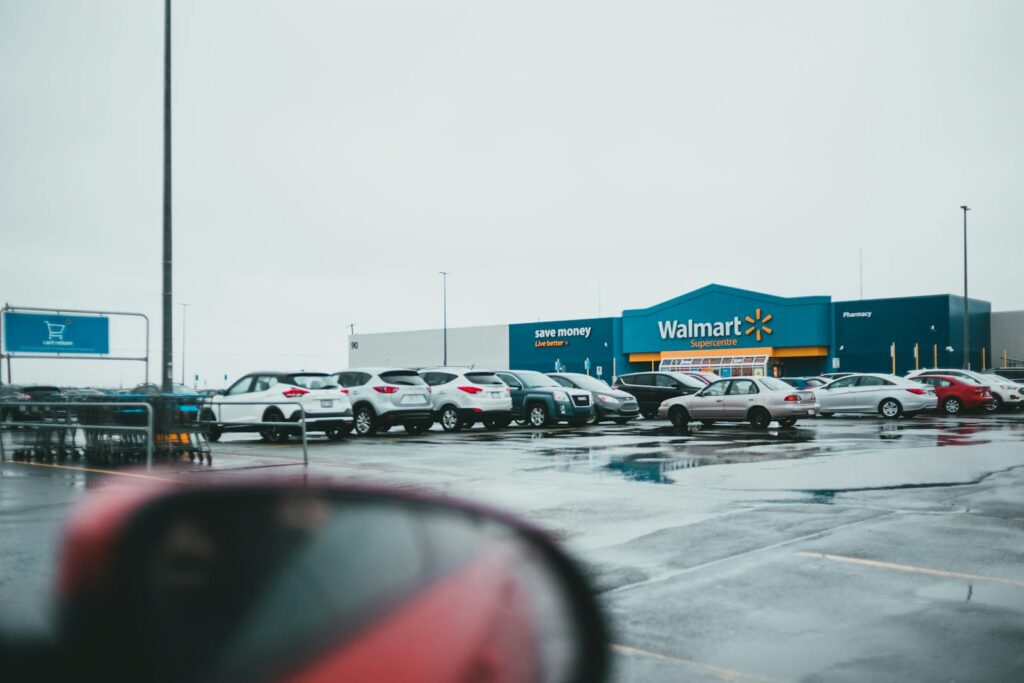
The entrepreneurial spirit in America remains vibrant, with approximately 670,000 small businesses launched each year. However, the journey from ideation to lasting success is fraught with challenges, as evidenced by the sobering statistic that 21% of small businesses fail within their first year, and only 25% manage to thrive beyond the 15-year mark. In such a competitive landscape, choosing the right location can be as pivotal as the business idea itself, offering a strategic advantage that significantly impacts a startup’s trajectory.
A new comprehensive report from Swoop Funding, leveraging eleven distinct data factors including Venture Capital (VC) investments, sales tax rates, health insurance costs, and the availability of coworking spaces, has meticulously ranked all U.S. states. Each state was assigned a ‘startup score’ out of 100, providing an authoritative guide for aspiring entrepreneurs seeking the most fertile grounds for their ventures in 2025. This report, combined with insights from broader analyses on ‘Top States for Doing Business’ and ‘startup-friendly cities,’ paints a detailed picture of the nation’s most dynamic entrepreneurial hubs.
The confluence of strong economic fundamentals, proactive government support, and innovative local ecosystems is clearly defining the next generation of startup capitals. The states that rise to the top of these rankings are not merely offering tax breaks or incentives; they are cultivating environments where businesses can access critical resources, navigate regulatory landscapes with greater ease, and tap into robust talent pools. This article delves into the top contenders, revealing the strategic advantages that make them stand out.

1. **Texas: The Lone Star State’s Unmatched Momentum**Texas firmly secures its position as the leading state for launching a business in 2025, achieving a formidable startup score of 55.31. This top ranking is a testament to its robust and diversified economy, which boasts booming business sectors across the board. The state’s innovative hubs, such as “Silicon Hills” in Austin, alongside major industrial centers in Dallas focusing on healthcare and finance, create a dynamic and supportive ecosystem for new ventures.
Beyond its economic might, Texas provides an unparalleled operational framework for startups. It leads the nation with the highest number of coworking spaces, totaling an impressive 280, fostering collaboration and providing flexible work environments crucial for early-stage companies. Furthermore, the state is recognized as #1 for business support quality, indicating a responsive and effective administrative environment that streamlines operations for entrepreneurs.
Financial backing is another cornerstone of Texas’s appeal, with the state attracting a staggering $6.66 billion in annual venture capital investment. This significant capital infusion provides essential fuel for growth, innovation, and scaling for numerous startups. Coupled with a strong 53% business survival rate beyond five years, Texas undeniably offers a strong and reliable foundation for budding entrepreneurs looking to maximize their chances of long-term success.
Additionally, analyses of startup-friendly cities further underscore Texas’s dominance. Dallas, Austin, and Houston consistently rank among the top cities for local government support, reflecting a proactive approach to fostering innovation. The state’s enduring allure is also attributed to its “no-income-tax vibe and pro-growth attitude,” with Dallas strategically leveraging its corporate connections, Austin cultivating a thriving tech playground, and Houston deepening its engagement with niche industries like energy and aerospace. Even smaller Texas cities, such as Arlington (No. 64), are steadily climbing the ranks, demonstrating that the state’s commitment to startup prosperity is widespread and deeply ingrained.
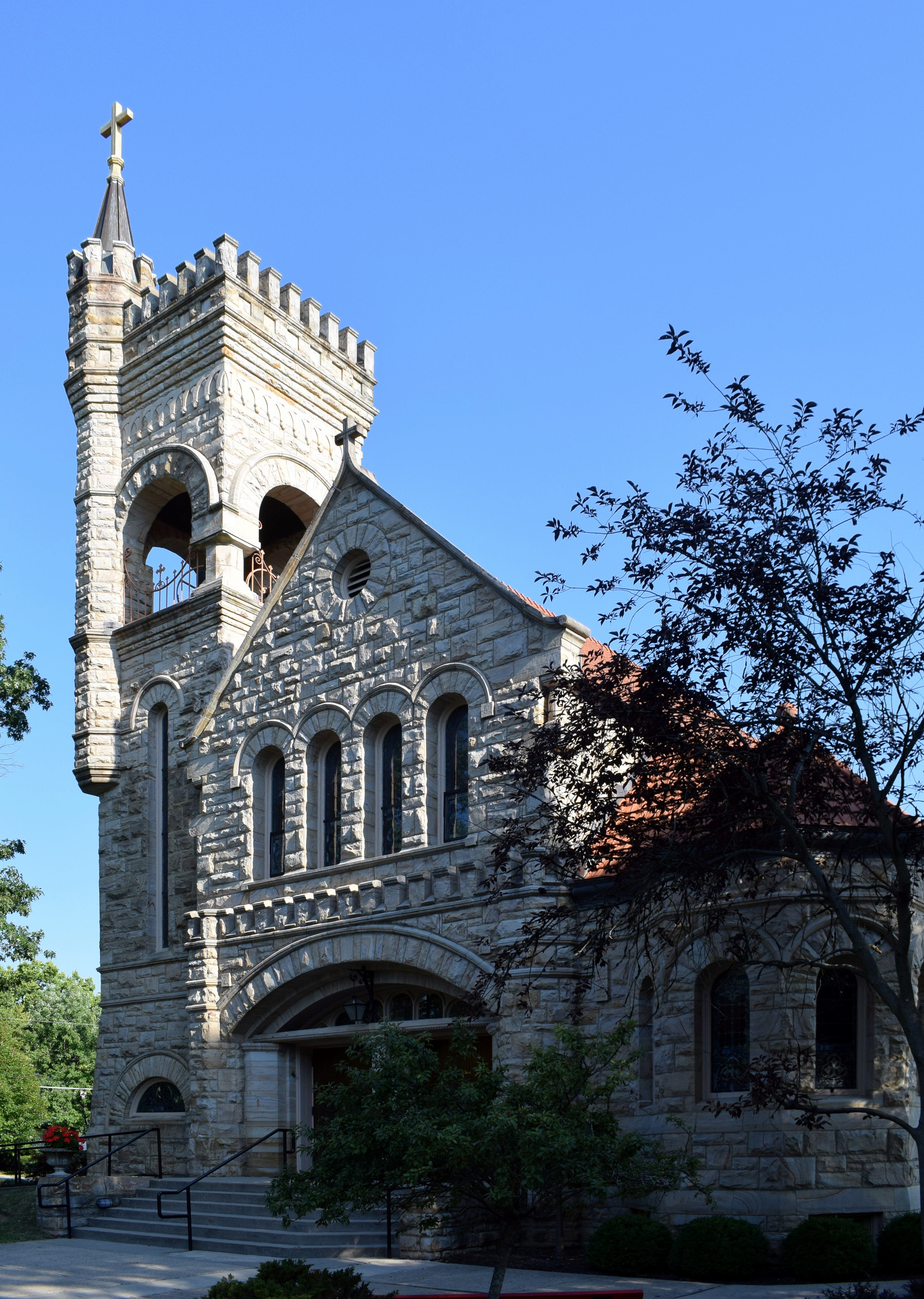
2. **Ohio: Affordability Meets Entrepreneurial Vigor**Following closely in second place, Ohio emerges as a compelling destination for startups, achieving a robust startup score of 54.93. The state distinguishes itself primarily through its exceptional affordability, a critical factor for new businesses meticulously managing their initial capital. Ohio boasts the cheapest office rent in the entire country, priced at an average of just $14.82 per square foot, significantly reducing overheads for nascent companies.
Operational efficiency and longevity are also key strengths for Ohio-based businesses. The state reports that an impressive 55% of businesses survive beyond the five-year mark, surpassing the national average and providing a strong indicator of a supportive economic climate. These affordable operational costs, combined with a substantial network of 197 coworking spaces, make Ohio an increasingly attractive and practical destination for entrepreneurs seeking to establish and grow their ventures without prohibitive financial burdens.
Beyond its cost advantages, Ohio’s position within broader business environment evaluations highlights its comprehensive appeal. The state consistently ranks among the top performers in categories such as the availability of sites, the efficacy of site readiness programs, and the speed of permitting processes, all crucial for rapid development and expansion. Furthermore, Ohio demonstrates strong capabilities in water availability and climate risk resilience, factors that are gaining increasing importance in long-term corporate planning.
Access to qualified labor is another area where Ohio shines, contributing to its overall attractiveness for businesses. While specific cities like Columbus (No. 55) and Cincinnati (No. 85) are recognized for local government support, even historically industrial areas like Cleveland (No. 119) are demonstrating a “Rust Belt Reinvention,” leveraging their heritage to foster new growth. This blend of affordability, strong business survival rates, and a well-rounded supportive ecosystem firmly establishes Ohio as a rising star in the national startup landscape.
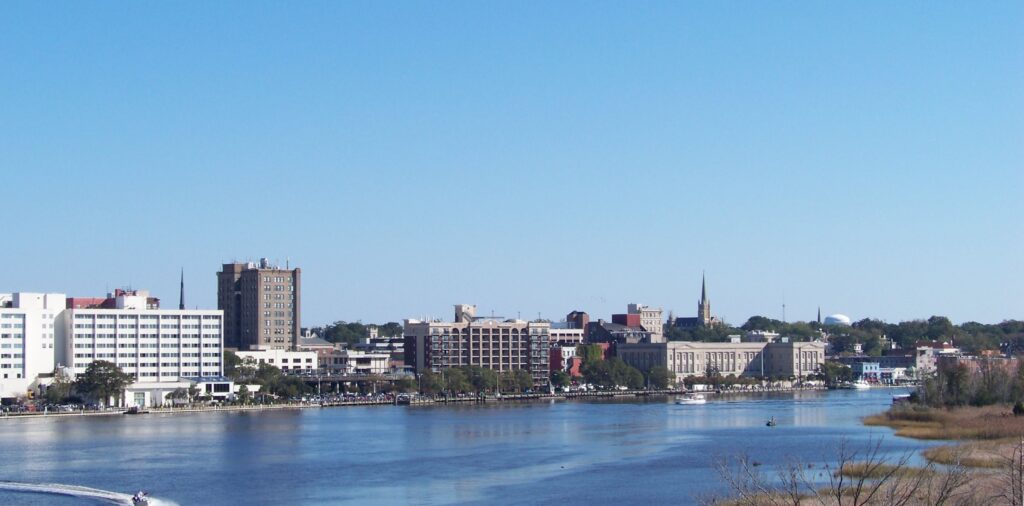
3. **North Carolina: A Hub for Growth and Entrepreneurial Talent**North Carolina confidently secures its position in the top three states for startups, earning a commendable score of 54.64. The state’s entrepreneurial ecosystem is characterized by both a high propensity for new business formation and impressive longevity. It boasts the 7th highest business survival rate nationally, signifying an environment where ventures can not only start but also flourish and sustain themselves over the long term.
Adding to its appeal, North Carolina ranks 9th for the sheer number of entrepreneurs by state, reflecting a strong culture of innovation and a continuous influx of new business registrants. The state’s infrastructure for collaboration and flexible work is equally robust, offering 233 coworking spaces. This figure is the 5th highest in the country, more than double the national average, providing ample resources for nascent companies to connect, grow, and innovate within a supportive community.
North Carolina’s comprehensive strength extends to its broader business climate, as highlighted by various reports. It consistently ranks among the top states for overall business, excelling in critical areas such as the availability of prime sites and the efficiency of its permitting processes. The state is also highly regarded for its workforce development initiatives, including robust training programs and access to a skilled labor pool, essential for companies requiring specialized talent.
Furthermore, North Carolina demonstrates leadership in energy availability and water resources, factors becoming increasingly critical for large-scale industrial projects. The state is particularly praised for its proactive approach to economic development, including embedding utility partners directly into economic development teams. This strategic alignment, exemplified by cities like Raleigh (No. 12), Charlotte (No. 16), and Durham (No. 53) in terms of local government support, ensures that North Carolina offers a highly responsive and integrated environment for entrepreneurial success.

4. **Mississippi: Emerging Potential in the Southeast**Mississippi earns its place as the fourth-best state for startups in 2025, registering a solid startup score of 53.75. While the context provides specific details for the top three, Mississippi’s inclusion at such a high rank suggests a burgeoning environment conducive to new business formation, likely benefiting from a combination of factors that contribute to a favorable operational landscape for entrepreneurs.
The state’s placement is particularly noteworthy within the broader trend of “Southeast dominance” in economic development rankings, indicating that it shares many of the characteristics that make the region a magnet for business investment and growth. This could include factors such as competitive operating costs, an evolving regulatory framework that supports business, and access to regional supply chains and markets.
Furthermore, several Mississippi cities are recognized for their local government support for startups, underscoring a statewide commitment to fostering innovation. Oxford (No. 90), Jackson (No. 100), and Starkville (No. 143) are listed among the 150 startup-friendly cities, suggesting that municipal efforts are creating pockets of entrepreneurial activity and providing crucial foundational support at the local level. These local initiatives often translate into easier navigation of permits, access to local resources, and community engagement for new businesses.
While specific granular data points for Mississippi’s startup ecosystem in the context are less elaborated compared to the top-tier states, its strong ranking in the Swoop Funding report signifies a compelling, though perhaps less heralded, opportunity for entrepreneurs. The combination of regional trends and local governmental backing positions Mississippi as an increasingly attractive destination for those seeking to launch and grow their ventures within a supportive, developing environment.

5. **Florida: The Sunshine State’s Strategic Pivot to Innovation**Florida secures its place among the top states for startups, achieving a startup score of 53.67 and ranking fifth overall. The state’s appeal transcends its well-known attributes of favorable weather and tax structures, signaling a profound shift towards becoming a serious hub for innovation and business growth. This transformation is reflected in the strong performance of its major cities in supporting new ventures.
Orlando (No. 4), Tampa (No. 5), and Miami (No. 9) all feature prominently in the top 10 list of startup-friendly cities, based on the strength of local government support. This high concentration of top-ranked cities indicates a strategic and concerted effort across the state to cultivate environments where startups can flourish. Local initiatives are clearly playing a pivotal role in creating robust ecosystems.
The success of these Florida cities is rooted in diverse strategies. Orlando is effectively tapping into its university talent pipeline, creating a continuous flow of skilled graduates and research-driven innovation. Tampa is actively building crucial bridges between founders and established industries, particularly in areas like logistics, fostering synergistic relationships and market access for new companies. Miami, on the other hand, is strategically positioning itself as a global gateway, leveraging its unique ties with Latin American markets to attract internationally-focused startups.
This collective success narrative signals a broader and significant shift in Florida’s economic identity. The state is evolving from merely a retirement destination to a dynamic launchpad for entrepreneurial ambition, offering more than just lifestyle benefits. Its growing infrastructure for innovation, combined with strategic regional advantages and proactive local support, makes Florida an increasingly potent force in the national startup landscape, attracting founders looking for both growth and connectivity.
Read more about: Gridiron Empire: How the National Football League Became the World’s Most Dominant Sports Spectacle
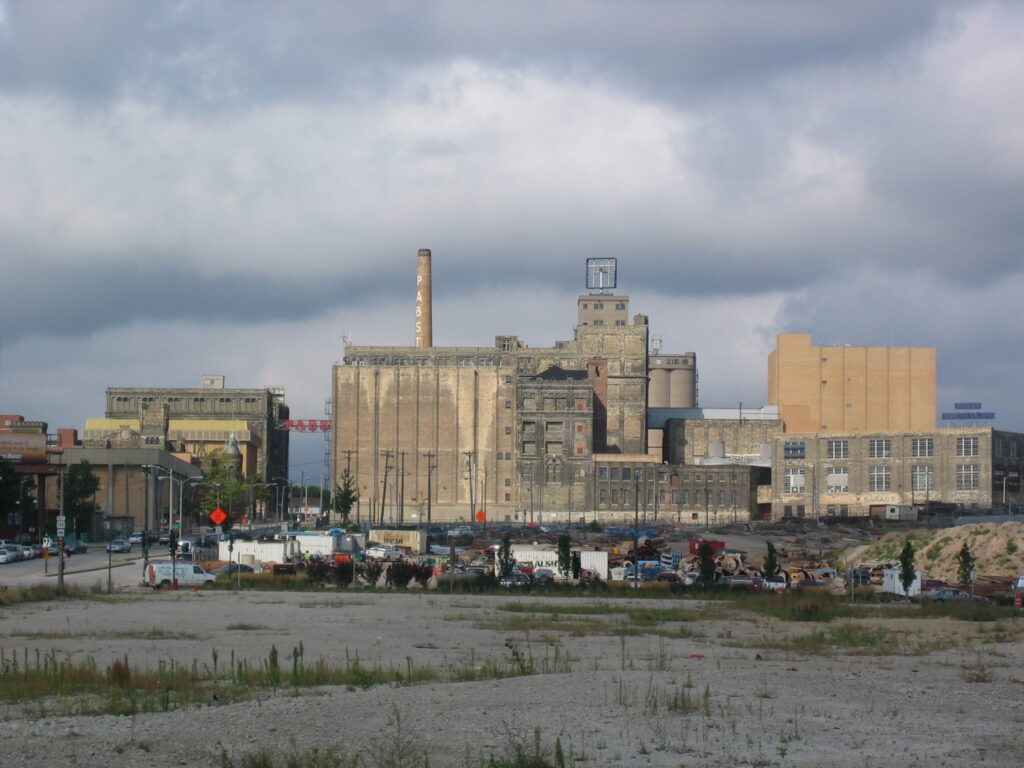
6. **Wisconsin: Northern Ingenuity and Steady Growth**Wisconsin earns a strong sixth-place ranking with a startup score of 52.05, positioning it as a significant player in the national startup scene. While detailed specific metrics for Wisconsin’s startup ecosystem in the initial report are not as explicitly laid out as for the top three, its high ranking suggests a compelling combination of factors contributing to a supportive environment for new businesses, particularly when considering its broader economic profile.
The state is particularly noted for its robust water availability, a factor that is rapidly gaining importance for site selectors and businesses, especially those in manufacturing and other water-intensive industries looking to future-proof their operations. This critical resource provides a long-term advantage, attracting companies that prioritize sustainability and resource security in their location decisions.
Furthermore, Wisconsin hosts several cities recognized for their commitment to fostering startups through local government support. Madison (No. 60), Green Bay (No. 74), and Milwaukee (No. 102) are all included in the comprehensive list of 150 startup-friendly cities. These cities demonstrate a local dedication to creating accessible resources, streamlined processes, and supportive communities for entrepreneurs, indicating a distributed network of innovation across the state.
This combination of inherent natural advantages, such as abundant water, coupled with proactive local government initiatives, underpins Wisconsin’s appeal. It suggests a reliable and steady environment for businesses that value stability, access to essential resources, and a commitment to nurturing new ventures, making it an attractive destination for entrepreneurs seeking sustained growth rather than just rapid, short-term gains.

7. **Pennsylvania: Rust Belt Resilience and Tech Transition**Pennsylvania secures a respectable seventh position in the startup rankings with a score of 51.76, demonstrating its evolving economic landscape and growing appeal for entrepreneurs. The state’s historical industrial backbone is now being complemented by burgeoning innovation hubs, marking a significant transition towards a more diversified, tech-oriented economy that actively supports new ventures.
Among its cities, Pittsburgh (No. 26), Philadelphia (No. 35), and State College (No. 73) are highlighted for their local government support for startups. This indicates a multi-faceted approach to fostering entrepreneurial activity across different regions within the state, from major metropolitan areas to university towns. Pittsburgh, in particular, is a prime example of “Rust Belt Reinvention,” actively pivoting towards a tech-driven future and becoming a notable hub for innovation.
This “tech pivot” in cities like Pittsburgh is not just anecdotal; it represents significant investment and strategic initiatives aimed at attracting and nurturing tech startups. The availability of grants, affordable space, and a resilient, can-do attitude characteristic of these regions provide a unique environment for entrepreneurs. Such areas offer a blend of lower operating costs compared to traditional tech epicenters, combined with growing access to skilled talent and collaborative ecosystems.
Pennsylvania’s ability to leverage its industrial heritage while simultaneously embracing new technologies and supporting entrepreneurial growth makes it a compelling state for founders. It offers a unique value proposition for startups looking for a combination of established infrastructure, a transitioning workforce, and proactive local support in their journey to scale and succeed in a dynamic market.” , “_words_section1”: “1994

8. **Montana: Rocky Mountain High for Entrepreneurs**Montana earns its position as the eighth-best state for startups in 2025, with a solid startup score of 51.29. This western state, known for its natural beauty, is increasingly recognized for cultivating an environment where new businesses can launch and thrive. Entrepreneurs are drawn to Montana for a blend of quality of life and emerging economic opportunities.
Several Montana cities actively foster startup growth through robust local government support. Missoula (No. 93), Bozeman (No. 130), and Billings (No. 132) are noted for their initiatives. These municipalities create accessible resources and streamline processes, indicating a growing, distributed network of innovation.
Montana’s inclusion aligns with the “West’s Wide-Open Opportunity” trend, where western cities blend outdoor allure with growing tech scenes. Local governments invest in incentives and infrastructure, positioning Montana as an attractive destination for founders seeking dynamic, community-focused environments.

9. **Georgia: The Southeast’s Consistent Powerhouse**Georgia, with a strong startup score of 51.27, continues its remarkable trajectory as a top-tier state for business, securing the ninth spot. For an impressive 12 consecutive years, Georgia has clinched the No. 1 overall ranking in Area Development’s Top States for Doing Business survey, a testament to its deeply embedded pro-business climate.
The state’s formidable performance spans several critical categories, making it a comprehensive hub for startups. Georgia leads in “Speed, Sites & Permitting,” showcasing high availability of sites, effective site readiness, and fast permitting. This proactive approach to land banking and utility mapping is crucial for accelerating from decision to operation.
Moreover, Georgia excels in “Workforce Wins” with robust training and access to qualified labor, and in “Energy, Infrastructure & Resilience” through high energy availability and climate risk resilience. Cities like Savannah (No. 17) and Athens (No. 40) further exemplify statewide commitment with strong local government support.

10. **Tennessee: Fueling Growth with Strategic Foundations**Tennessee secures its position as the tenth-best state for startups in 2025, earning a solid score of 50.79. The state strategically leverages its prime geographical location and collaborative economic development to create fertile ground for new businesses. Its top-tier presence highlights a growing reputation as a hub for entrepreneurial ventures.
The state consistently performs well in categories critical for rapid business growth and longevity. Tennessee is recognized for strong “site readiness programs,” essential for minimizing development hurdles and accelerating speed to market. Its highly regarded “workforce training programs” ensure a pipeline of skilled talent for diverse startup sectors.
Tennessee also demonstrates strength in “Energy, Infrastructure & Resilience,” with strong energy availability and proactive climate risk resilience. Local government initiatives in cities like Chattanooga (No. 25) and Memphis (No. 42) reinforce this. Chattanooga, noted for “betting on its lightning-fast internet to lure techies,” showcases how targeted investments boost appeal.

11. **Michigan: Reinventing the Industrial Heartbeat**Michigan, with a startup score of 50.61, earns the eleventh spot, symbolizing its successful pivot from a traditional manufacturing stronghold to a dynamic environment for new businesses. Deeply entrenched in the “Rust Belt Reinvention” narrative, the state actively sheds old stereotypes by backing startups with strategic investments and fostering innovation.
A distinct advantage for Michigan lies in its “Energy, Infrastructure & Resilience” profile, particularly its abundant “water availability.” As a Great Lakes state, Michigan offers critical water resources, attracting manufacturers looking to future-proof their operations against scarcity. The state also exhibits strong climate risk resilience, enhancing its long-term appeal for stable business growth.
Local government support is a cornerstone of Michigan’s entrepreneurial ecosystem. Ann Arbor (No. 27) exemplifies a “College Town Startup Goldmine,” effectively “tapping into university talent” to drive innovation. Detroit’s “scrappy resurgence” highlights how industrial heritage can sprout new growth with affordable space and a resilient attitude.

12. **Iowa: Cultivating Midwest Innovation**Iowa, with a startup score of 49.56, emerges as the twelfth state with a burgeoning startup scene, presenting a compelling environment for entrepreneurs in the Midwest. The state’s steady growth and supportive local initiatives foster an attractive ecosystem balancing affordability with a dedicated commitment to innovation.
Across Iowa, several cities actively propel startup success through robust local government support. Des Moines (No. 89), Iowa City (No. 106), and Ames (No. 139) are recognized for their efforts. These municipalities are crucial in providing essential resources, streamlining processes, and cultivating communities conducive to new business development.
While granular data for Iowa’s specific startup ecosystem may be less detailed than for higher-ranked states, its consistent presence in lists of startup-friendly cities underscores foundational strength. This suggests a powerful blend of local support, competitive operating costs, and access to a stable workforce.

13. **North Dakota: A Northern Frontier for New Ventures**North Dakota, scoring 49.12, secures the thirteenth position, presenting an opportunity for startups seeking a unique blend of community and economic potential. This northern state is progressively establishing its presence on the national startup landscape by emphasizing a focused approach to local support and leveraging its inherent advantages.
The state’s commitment to nurturing new businesses is demonstrated through the proactive efforts of its cities. Fargo (No. 110), Grand Forks (No. 145), and Bismarck (No. 147) are acknowledged for local government support. These communities exemplify that even in smaller states, “a tight-knit community and a little government muscle can go a long way,” proving focused support often outweighs sheer scale.
North Dakota’s inclusion suggests an environment where entrepreneurs can benefit from a less saturated market and a supportive local ecosystem. Its steady performance indicates a reliable setting for businesses prioritizing community engagement, practical support, and potential for sustained, measured growth, particularly in sectors aligned with regional strengths.
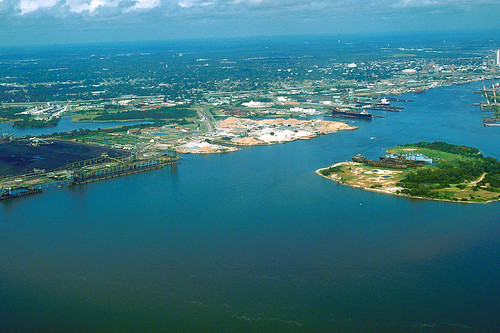
14. **Alabama: Southern Charm Meets Startup Ambition**Alabama earns the fourteenth position with a startup score of 48.74, clearly signaling its rising prominence as a state actively cultivating entrepreneurial growth within the Southern U.S. This state demonstrates a concerted effort to diversify its economy and create supportive ecosystems for new businesses, blending its traditional charm with modern startup ambition.
Key cities in Alabama are making significant strides in fostering a startup-friendly environment through strong local government support. Huntsville (No. 43), Birmingham (No. 95), and Mobile (No. 77) are highlighted. Huntsville, in particular, stands as a testament to how targeted investment and innovation can propel a city, and the state, into a competitive position for tech and advanced manufacturing startups.
Alabama’s presence on this list reflects a broader “Southeast dominance” trend in economic development, where regional states are becoming magnets for business investment. This success hinges on competitive operating costs, an improving regulatory framework, and strategic access to regional supply chains and markets.

15. **South Dakota: High Plains, High Hopes for Startups**South Dakota rounds out our distinguished list, securing the fifteenth position with a startup score of 48.59. This high-plains state, though smaller in population, vividly illustrates how “Small States, Big Ambitions” can translate into tangible support for new businesses, offering a unique value proposition for entrepreneurs.
The state’s unwavering commitment to its entrepreneurial community is evident in the proactive stance of its cities in providing local government support. Sioux Falls (No. 72), Rapid City (No. 91), and Brookings (No. 146) are all recognized for their efforts to create a welcoming and resource-rich environment for startups. These local initiatives are crucial in leveraging a close-knit community to nurture innovation effectively.
South Dakota’s inclusion underscores the truth that effective startup ecosystems aren’t solely the domain of mega-cities. States with focused strategy and responsive local governments create significant opportunities. For founders prioritizing lower operating costs, a strong community, and direct access to local decision-makers, South Dakota presents an attractive frontier.
### Strategic Overview: The Evolving Landscape of U.S. Startup Ecosystems
Beyond the individual strengths of these top-performing states, a profound transformation reshapes the national business landscape, redefining what it means to be a “top state” for startups in 2025. This evolution moves past simple tax incentives and low costs, emphasizing alignment, execution, and integrated solutions as paramount drivers of entrepreneurial success. Leading site consultants and comprehensive surveys illuminate four critical themes: Speed, Sites & Permitting; Workforce Wins; Energy, Infrastructure & Resilience; and Business Climate & Government Support.
**Speed, Sites & Permitting: The New Baseline**
In today’s compressed project timelines, “speed to market isn’t just an advantage. It’s the baseline,” experts affirm. States like Texas, Georgia, and Ohio invest in land banking and statewide inventory for swift parcel evaluation. They lead in site availability and proactively clear hurdles like due diligence. Permitting, often a bottleneck, becomes an advantage where states streamline reviews and foster responsiveness. As Jonathan Gemmen notes, “site readiness and energy availability have become increasingly important factors.” Governments must “move at the speed of business” to secure investment.
**Workforce Wins: Beyond Headcount**
Workforce development has shifted dramatically, focusing on sophisticated talent pipeline development, customization, and comprehensive enablement. States like Virginia, Georgia, and North Carolina lead with programs aligned with employer needs. Qualified labor access is weighed against demographic trends and training centers. Experts like Alexandra Segers and Ford Graham highlight labor shortages, making “workforce availability, recruitment support, and training programs… the most important parameter.” Customization through “concierge-style” solutions is key. Beyond training, top states address affordable housing, childcare, and transportation as critical “workforce enablement” factors for community stability.
**Energy, Infrastructure & Resilience: Powering Industry**
Perhaps the most ascendant factor in 2025 site selection is power—its cost, availability, and reliability. Demand from EVs, semiconductors, AI, and data centers strains the grid. States delivering reliable, affordable, and scalable energy are winners. Louisiana, Oklahoma, and Texas lead in energy cost; Texas, Georgia, and Ohio excel in energy availability due to strong utility coordination. Jonathan Gemmen warns of “reduced availability of electric capacity” and longer lead times. Water availability and climate risk assessment are also climbing the priority list. Direct engagement with utilities, often embedded in economic development teams, is a praised best practice.
**Business Climate & Government Support: Ultimate Alignment**
In economic turbulence, consistency and pro-business policy at state and local levels are paramount. “Alignment” of agencies, utilities, and educational institutions is cited as the hallmark of top-performing states. Alex Miller emphasizes that programs must translate to “on-the-ground responsiveness.” States are judged not just by low taxes but by providing “predictability, speed to market, and scalability.” The “Rust Belt Reinvention” and “Small States, Big Ambitions” demonstrate that strategic, focused support levels the playing field. This comprehensive approach, from streamlined bureaucracy to active community engagement, confirms that backing startups is a fundamental strategy for economic prosperity.
### The Path Ahead: Sustaining the Entrepreneurial Momentum
The landscape for startups in 2025 is complex yet opportunity-rich, shaped by states and cities actively rewriting their playbooks to foster innovation. From major hubs to smaller, focused regions, the message is clear: cultivating a truly entrepreneurial ecosystem demands a holistic approach. This includes championing speed, developing a skilled workforce, ensuring robust infrastructure, and maintaining an unwavering commitment to pro-business policies. For aspiring entrepreneurs, the challenge—and indeed the immense opportunity—lies in identifying these aligned environments, truly prepared to support the journey from groundbreaking idea to lasting success. The states highlighted here are not merely leading; they are collectively setting the new gold standard for entrepreneurial ambition across America.

